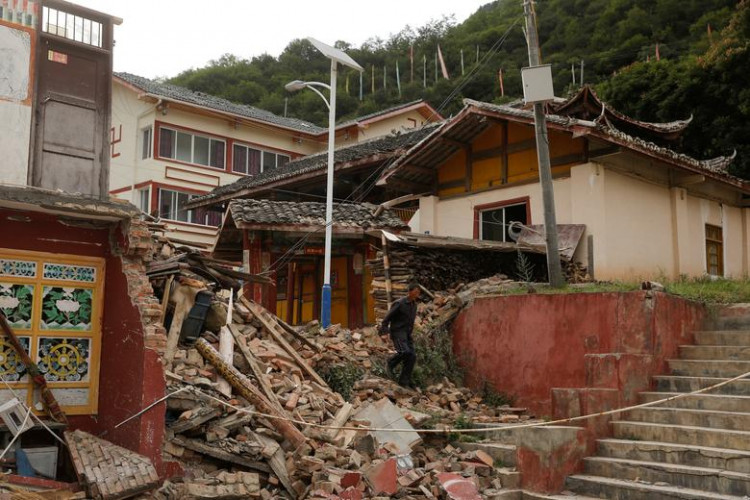A 6.0-magnitude earthquake in China's southwestern Sichuan province has destroyed hundreds of homes and killed at least three people. State-run media said at least 60 people were also injured as a result of the quake.
The U.S. Geological Survey measured the earthquake at 5.4-magnitude on its 8-point scale. The quake hit Thursday morning just 52 kilometers southwest of Yongchuan district in Chongqing. The USGS measured the quake at an initial depth of 10 kilometers.
According to government reports, at least 1,221 houses in the province had collapsed and about 3,000 others were seriously damaged. Sichuan is located along one of China's seismic belts and low-magnitude earthquakes are common in the province. However, the latest earthquake was stronger than usual, which resulted in substantial damage to houses and infrastructure.
The strongest earthquake to hit the region, which runs along the Longmenshan Fault, was a 7.9-magnitude quake in 2008. The Sichuan earthquake, also known as the Wenchuan earthquake, killed close to 90,000 people. The quake was felt in cities several hundred miles away.
An earthquake in China's southwestern province of Sichuan left at least three people dead and 60 injured on Thursday, according to state-run media https://t.co/OLnC1rFec1 — CNN (@CNN) September 16, 2021
Experts said a lot of the houses that were damaged during the 2008 quake had not been repaired. The latest quake exacerbated those weaknesses, resulting in major collapses.
The 2008 quake had brought to light poor construction standards and building regulations, prompting the government to impose tighter rules. The region had also invested heavily in disaster preparedness measures and equipment.
In the latest quake, local governments were quick to launch rescue operations in hard-hit areas. The provincial government also activated a level 2 response to the event, the second-highest in the country's four-tier earthquake emergency response system.
The city of Luzhou was one of the hardest-hit areas. The government has already begun rescue operations in the city of about 5 million residents. State media reported that heavy machinery, medical personnel, rescue equipment, and medical supplies have already been dispatched. Residents in landslide-prone areas have also been evacuated to temporary tents.
Experts said the evacuations were necessary as aftershocks could cause major landslides and more houses to collapse. Experts said a stronger quake following the latest one is unlikely.





